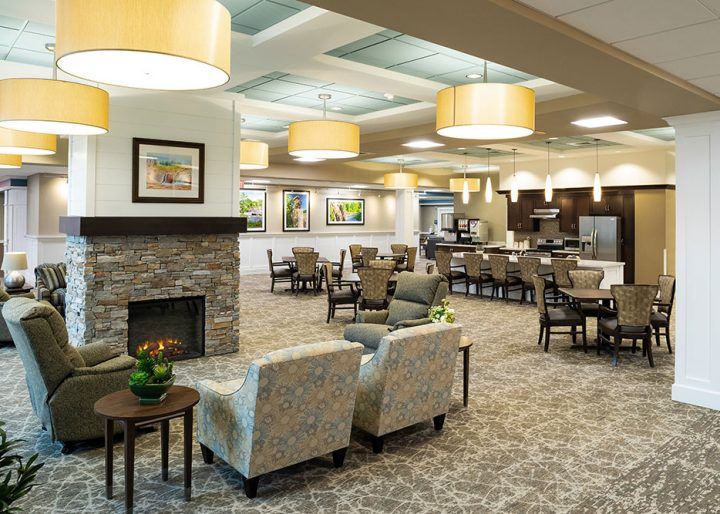Helped Living: a Compassionate Atmosphere for Senior Citizens With Memory Difficulties
Assisted living centers increasingly serve as compassionate environments tailored to the special requirements of elders facing memory difficulties. By providing customized treatment and organized routines, these communities not only enhance cognitive feature however additionally foster psychological links, reducing seclusion amongst residents. Specialized approaches, such as songs therapy and memory techniques, are used by experienced personnel to help with much deeper interaction. However, the performance of these treatments frequently rests on the participation of families in the care process, motivating a closer evaluation of how this collective initiative affects results for both residents and loved ones.
Recognizing Memory Difficulties
Comprehending memory obstacles is essential for offering reliable treatment to seniors dealing with cognitive decline. Memory disabilities, which can materialize as forgetfulness, complication, or problem recalling recent occasions, are often symptoms of conditions such as Alzheimer's disease or other kinds of mental deterioration. These difficulties can dramatically affect a senior's ability to carry out daily tasks, maintain social partnerships, and take care of personal security.
Recognizing the different phases of cognitive decline is important for caregivers and health care professionals. Early-stage amnesia may include moderate forgetfulness, while mid-stage decrease can cause much more obvious disorientation and confusion. In late-stage mental deterioration, individuals might shed the capacity to communicate successfully, calling for comprehensive support and understanding from caregivers.
Furthermore, memory difficulties can evoke a series of emotional feedbacks, consisting of aggravation, stress and anxiety, and anxiety. This demands a caring strategy to care that focuses on the emotional wellness of the person. Recognizing the intricacies of memory obstacles makes it possible for caretakers to create customized strategies that boost interaction, advertise involvement, and supply a complacency. Inevitably, a deep understanding of these obstacles is fundamental to providing thoughtful and effective look after seniors dealing with cognitive decrease.
Advantages of Assisted Living
Assisted living offers numerous benefits for seniors with memory difficulties, giving a helpful setting that fosters freedom while making sure safety and security and care. One of the main advantages is the round-the-clock supervision and support offered, which aids alleviate risks connected with memory-related problems. Assisted Living. This constant support enables elders to take part in daily activities without the worry of mishaps or confusion
Additionally, aided living centers typically provide structured routines that can enhance cognitive function and stability. These routines help residents really feel even more protected and lower anxiety, as they recognize what to expect every day. Social communication is another considerable advantage, as these environments motivate links among citizens, advertising psychological health and reducing sensations of seclusion.
Moreover, assisted living staff are trained to identify the unique demands of elders with memory obstacles, enabling individualized care plans that address private preferences and demands. This tailored strategy not just enhances the quality of care however also equips seniors to keep a sense of autonomy. On the whole, assisted living functions as a thoughtful solution, balancing the requirement for assistance with the wish for self-reliance in the lives of senior citizens facing memory obstacles.
Specialized Care Approaches
Carrying out specialized treatment methods is important for effectively supporting elders with memory obstacles. These individualized strategies concentrate on improving the lifestyle and fostering self-reliance while dealing with the unique demands of individuals with cognitive disabilities. One basic technique is person-centered treatment, which highlights the significance of understanding each resident's biography, preferences, and values. By customizing care plans appropriately, staff can create a more appealing and about his significant atmosphere.
One more vital strategy includes making use of cognitive excitement treatments. Tasks created to enhance memory recall, encourage social interaction, and advertise imagination can considerably affect locals' general health. Methods such as reminiscence therapy leverage individual memories to trigger discussion and connection, while music therapy can stimulate emotions and memories, providing convenience.

Developing a Supportive Community
(Memory Care Facility Charlotte)An encouraging community plays an essential role in improving the lives of senior citizens with memory difficulties. Such an area cultivates an environment of understanding, compassion, and support, which is crucial for individuals dealing with cognitive problems. By developing a network of assistance, assisted living facilities can significantly enhance the high quality of life for homeowners.
Central to an encouraging area is the presence of trained team that are sensitive to the distinct needs of elders with memory problems. These professionals not just provide important treatment but also engage residents in significant activities that promote cognitive function and promote social communication. Programs that encourage engagement in group workouts, arts and crafts, or memory games can improve both physical and mental health.
Furthermore, a helpful area promotes solid links amongst residents. Urging friendships and peer assistance aids to decrease sensations of seclusion and fosters a sense of belonging. Regular get-togethers and common dining experiences can additionally strengthen these bonds, producing an environment where seniors feel valued and comprehended.
Involving Families in Care
Engaging families in the treatment procedure is essential for providing detailed support to senior citizens with memory challenges. Member of the family often offer as crucial supporters, offering insights into the individual's preferences, history, and regimens that can improve individualized treatment. By including them in discussions and care planning, aided living centers can develop a much more holistic method that resonates with the resident's requirements.

Motivating families to get involved in treatment not only boosts the wellness of the elderly but likewise provides psychological support to family members. Including families in care grows a feeling of community and belonging, ensuring that senior citizens feel linked to their loved ones. Ultimately, a collective technique to care enriches the lives of both locals and their families, producing a compassionate and helpful setting that promotes self-respect and regard.
Verdict
To conclude, helped living works as a vital resource for senior citizens experiencing memory obstacles, using customized care tailored to private requirements. The organized routines and appealing tasks promote cognitive function and psychological health, cultivating a feeling of belonging. Specialized treatment techniques, such as memory and songs therapy, boost interaction and connection. By involving families in the treatment process, helped living creates a detailed assistance network, ultimately enhancing the lives of residents and their loved ones.